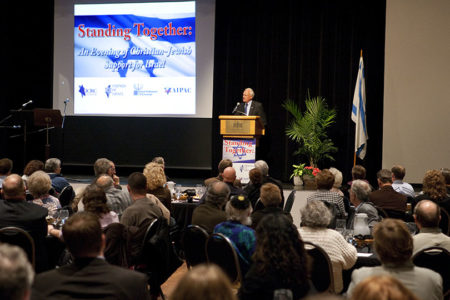The Love and Mercy of God Part Two
The previous article examined the relationship of God’s love and covenant commitment to His mercy (lovingkindness) and discussed three different principles involved in mercy. Now I will examine characteristics of God’s mercy as revealed in the Old Testament.
The Greatness of God’s Mercy
When the Israelites complained and threatened to return to Egypt after their spies reported that Canaan could not be conquered because it was filled with giants, God threatened to destroy them and start a new nation through Moses (Num. 13:31—14:12). Moses pleaded with God, “Pardon the iniquity of this people, I pray, according to the greatness of Your mercy, just as You have forgiven this people, from Egypt even until now” (14:19).
When Nehemiah contended with the nobles of Judah and the merchants outside Jerusalem who profaned the Sabbath, he prayed, “Remember me, O my God, concerning this also, and spare me according to the greatness of Your mercy!” (Neh. 13:22).
King David wrote the following concerning the greatness of God’s mercy:
He has not dealt with us according to our sins, nor punished us according to our iniquities. For as the heavens are high above the earth, so great is His mercy toward those who fear Him (Ps. 103:10‒11). The Lᴏʀᴅ is gracious and full of compassion, slow to anger and great in mercy (145:8). For great is Your mercy toward me, and You have delivered my soul from the depths of Sheol (86:13).
Another psalmist wrote, “Praise the Lᴏʀᴅ, all you Gentiles! Laud Him, all you peoples! For His merciful kindness is great toward us, and the truth of the Lᴏʀᴅ endures forever. Praise the Lᴏʀᴅ!” (117:1‒2).
King Solomon, David’s son, declared to God, “You have shown great mercy to Your servant David my father” (1 Ki. 3:6).
The Permanency of God’s Mercy
Although God permitted the kingdom of Judah and the city of Jerusalem to be chastened by enemies because of their rebellion against Him, He declared,
“With a little wrath I hid My face from you for a moment; but with everlasting kindness I will have mercy on you,” says the Lᴏʀᴅ, your Redeemer. “For this is like the waters of Noah to Me; for as I have sworn that the waters of Noah would no longer cover the earth, so have I sworn that I would not be angry with you, nor rebuke you. For the mountains shall depart and the hills be removed, but My kindness shall not depart from you, nor shall My covenant of peace be removed,” says the Lᴏʀᴅ, who has mercy on you (Isa. 54:8‒10).
A psalmist wrote the following exhortation: “Oh, give thanks to the Lᴏʀᴅ, for He is good! For His mercy endures forever” (Ps. 136:1). The expression “For His mercy endures forever” appears 26 times in this psalm.
After God had delivered David from all his enemies, including King Saul, David spoke the words of a song to God: “Therefore I will give thanks to You, O Lᴏʀᴅ, among the Gentiles, and sing praises to Your name. He is the tower of salvation to His king, and shows mercy to His anointed, to David and his descendants forevermore” (2 Sam. 22:50‒51).
David also wrote, “But the mercy of the Lᴏʀᴅ is from everlasting to everlasting on those who fear Him” (Ps. 103:17).
When the builders laid the Temple’s foundations after the Israelites returned to their homeland from their captivity in Babylon, “the priests stood in their apparel with trumpets, and the Levites, the sons of Asaph, with cymbals, to praise the Lᴏʀᴅ….And they sang responsively, praising and giving thanks to the Lᴏʀᴅ: ‘For He is good, for His mercy endures forever toward Israel’” (Ezra 3:10‒11).
The Abundance of God’s Mercy
God said concerning Himself, “The Lᴏʀᴅ is longsuffering and abundant in mercy, forgiving iniquity and transgression” (Num. 14:18).
David declared to God, “I will come into Your house in the multitude of Your mercy” (Ps. 5:7).
When David had many enemies who hated him without cause, wanted to destroy him, and spoke against him (Ps. 69:4, 12), he fasted, clothed himself in sackcloth (vv. 10‒11), and said, “But as for me, my prayer is to You, O Lᴏʀᴅ, in the acceptable time; O God, in the multitude of Your mercy, hear me in the truth of Your salvation. Deliver me out of the mire, and let me not sink; let me be delivered from those who hate me” (vv. 13‒14).
On another occasion David begged God,
Be merciful to me, O Lord, for I cry to You all day long. Rejoice the soul of Your servant, for to You, O Lord, I lift up my soul. For You, Lord, are good, and ready to forgive, and abundant in mercy to all those who call upon You….But You, O Lord, are a God full of compassion, and gracious, longsuffering and abundant in mercy and truth (86:3‒5, 15).
In Psalm 103:8 David wrote, “The Lᴏʀᴅ is merciful and gracious, slow to anger, and abounding in mercy.”
Another psalm writer told God, “Our fathers in Egypt did not understand Your wonders; they did not remember the multitude of Your mercies, but rebelled by the sea—the Red Sea” (106:7). This writer indicated that God was so angry with His people that He allowed their Gentile enemies to oppress them many times (vv. 40‒43). “Nevertheless He regarded their affliction, when He heard their cry; and for their sake He remembered His covenant, and relented according to the multitude of His mercies” (vv. 44‒45).
After rehearsing the rebellion against God referred to in Psalm 106, Nehemiah declared, “But You are God, ready to pardon, gracious and merciful, slow to anger, abundant in kindness, and did not forsake them” (Neh. 9:17).
The prophet Jeremiah said, “You show lovingkindness to thousands” (Jer. 32:18).
God described Himself as the One “showing mercy to thousands, to those who love Me and keep My commandments” (Ex. 20:6).
Lamentations 3:32 declares, “Though He causes grief, yet He will show compassion according to the multitude of His mercies.”
Jonah told God that he fled to Tarshish instead of going to Nineveh to preach judgment because “I know that You are a gracious and merciful God, slow to anger and abundant in lovingkindness, One who relents from doing harm” (Jon. 4:2).
The Keeping of God’s Mercy
There are two words for “keeping” in the Old Testament: nasar and shamar. Nasar has “the meaning ‘keep’” in the sense of observing “through close (visual) attention issuing in action.”1 As God continually observes people’s activities and circumstances, He continually keeps or maintains the attitude of mercy for those in need.2
When Moses was on Mount Sinai, “the Lᴏʀᴅ passed before him and proclaimed, ‘The Lᴏʀᴅ, the Lᴏʀᴅ God, merciful and gracious, longsuffering, and abounding in goodness and truth, keeping mercy for thousands’” (Ex. 34:6‒7).
Shamar conveys the idea of exercising “great care” over something.3 “One of the most frequent uses of the verb” is to express “the careful attention to be paid to the obligations of a covenant.”4
Moses used this word when he told the Israelites, “Therefore know that the Lᴏʀᴅ your God, He is God, the faithful God who keeps covenant and mercy for a thousand generations with those who love Him and keep His commandments” (Dt. 7:9).
Solomon used this word when he said, “Lᴏʀᴅ God of Israel, there is no God in heaven above or on earth below like You, who keep Your covenant and mercy with Your servants who walk before You with all their hearts” (1 Ki. 8:23).
After Nehemiah heard that the Jewish people who had returned to their homeland from Babylon were in great affliction and reproach and that Jerusalem’s wall was bro-ken down and the gates burned, he wept. He mourned for several days and used shamar in the introduction of his prayer: “Lᴏʀᴅ God of heaven, O great and awesome God, You who keep Your covenant and mercy with those who love You and observe Your commandments” (Neh. 1:5).
When Daniel observed from the writings of Jeremiah that Israel’s 70-year captivity in Babylon was nearing its end, he fasted, wore sackcloth and ashes, and prayed to God. He used shamar in the introduction of his prayer as well: “O Lord, great and awesome God, who keeps His covenant and mercy with those who love Him, and with those who keep His commandments” (Dan. 9:4).
The ‘Better Than Life’ Quality of God’s Mercy
After God delivered David from his enemies, David declared, “Your lovingkindness is better than life” (Ps. 63:3). There are many times when a person is not capable of saving himself from a life-threatening situation. Only God’s mercy can do so. Old Testament scholar Terry L. Brensinger wrote, “Life takes on a new perspective when it is about to be lost, perhaps even to excessive extremes. This would seem to be the case in Ps. 63:3, when, in a word of thanksgiving following an answered prayer, the psalmist reorients his priorities and acknowledges that God’s faithfulness is better than life.”5
Action Determination of God’s Mercy
The author of Psalm 119 said to God, “Deal with Your servant according to Your mercy” (Ps. 119:124). And the author of Lamentations wrote the following: “Through the Lᴏʀᴅ’s mercies we are not consumed, because His compassions fail not” (Lam. 3:22). “Though He causes grief, yet He will show compassion according to the multitude of His mercies” (v. 32). These statements indicate that God’s mercy, or lovingkindness, plays a significant role in the determination of His actions.
ENDNOTES
- S. Wagner, “nasar,” Theological Dictionary of the Old Testament, ed. G. Johannes Botterweck, Helmer Ringgren, and Heinz-Josef Fabry, trans. David E. Green, translated from Theologisches Worterbuch zum Alten Testament (Grand Rapids, MI: Eerdmans, 1998), 9:541.
- Ibid., 548.
- John E. Hartley, “shamar,” Theological Wordbook of the Old Testament, ed. Laird Harris, Gleason L. Archer, Jr. and Bruce K. Waltke (Chicago: Moody Press, 1980), 2:548.
- Ibid.
- Terry L. Brensinger, “hesed,” New International Dictionary of Old Testament Theology and Exegesis, ed. Willem A. Van Gemeren (Grand Rapids, MI: Zondervan, 1997), 2:111.








This is refreshing and faith energizing